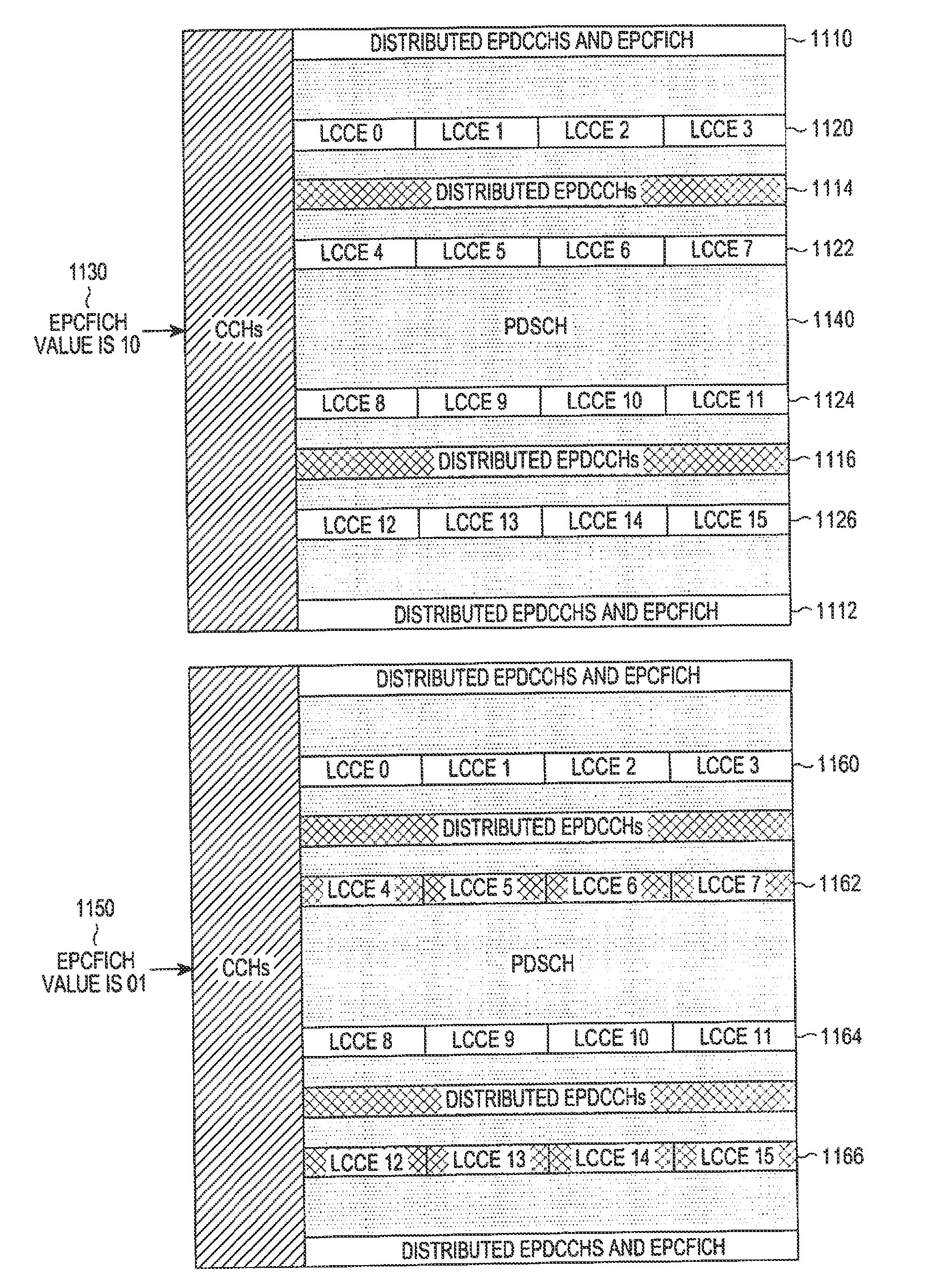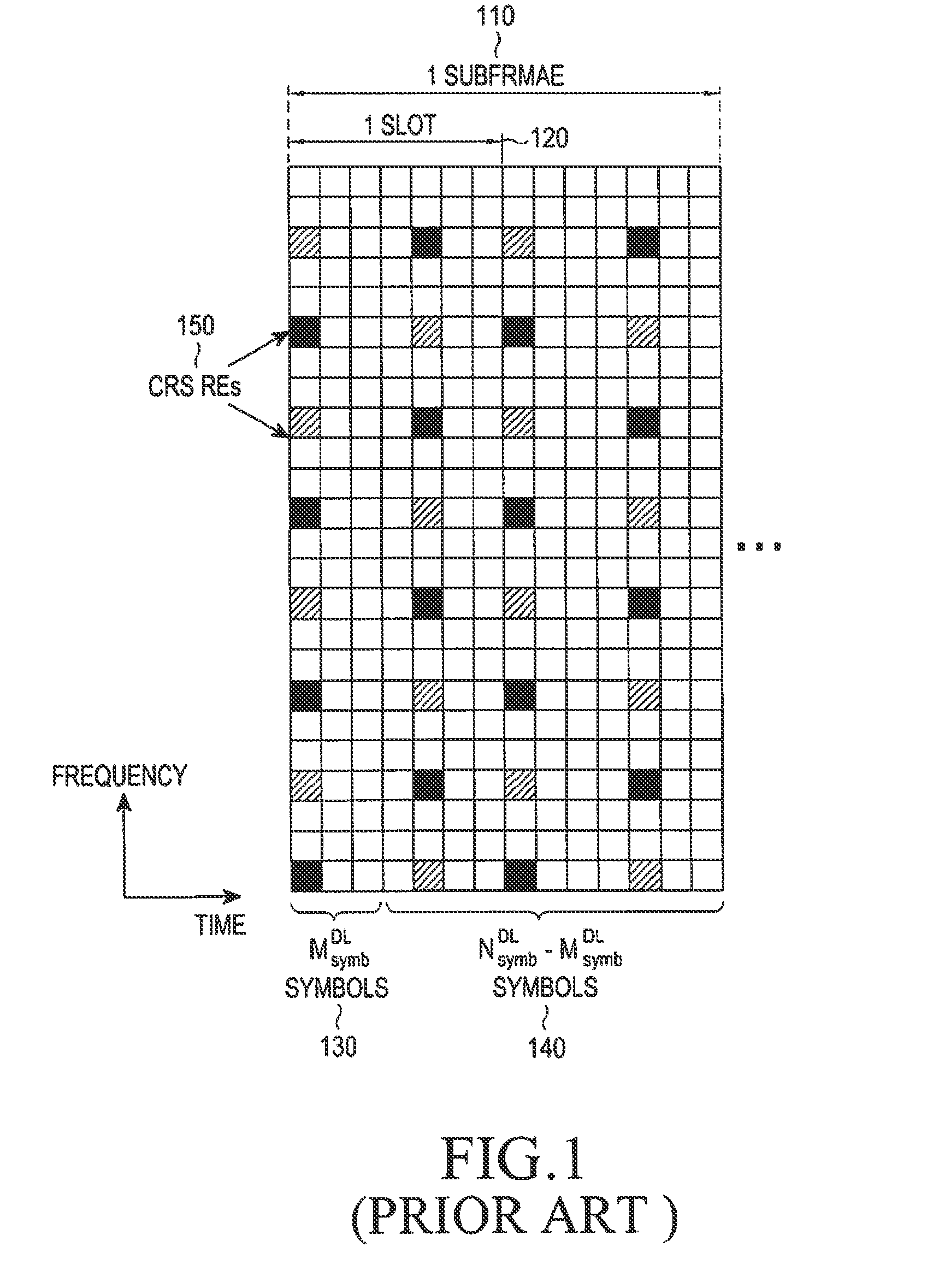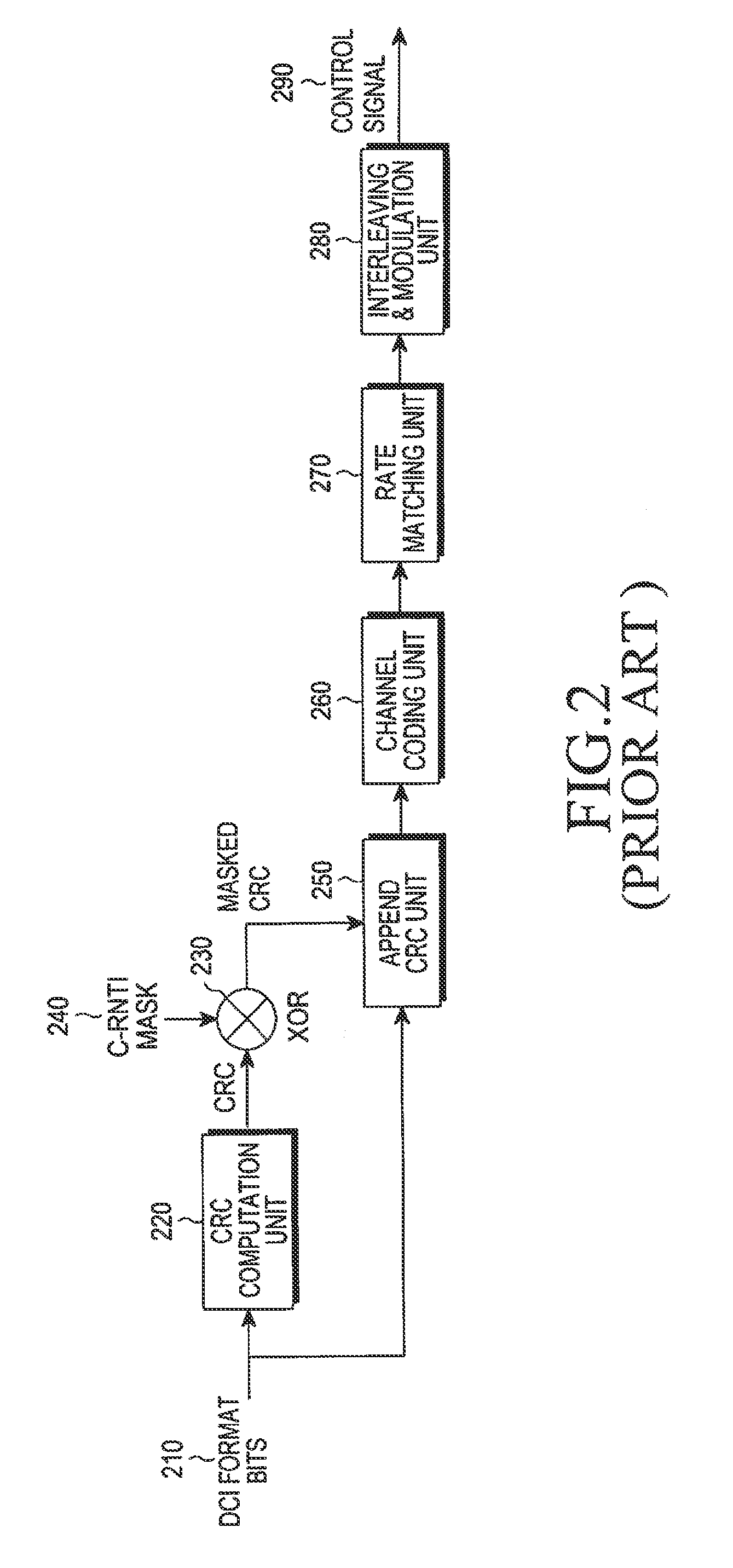Harq-ack signal transmission in response to detection of control channel type in case of multiple control channel types
a technology of acknowledgement and signal transmission, applied in the field of wireless communication systems, can solve the problems of limiting the pdcch capacity, unable to achieve interference coordination in the frequency domain, and unable to direct extension of the maximum dl control region size to more than m/sup>symbols/sup>=3 ofdm symbols
- Summary
- Abstract
- Description
- Claims
- Application Information
AI Technical Summary
Benefits of technology
Problems solved by technology
Method used
Image
Examples
second embodiment
[0092]the invention considers methods and apparatus for a UE to determine a PUCCH resource for HARQ-ACK signal transmission in response to the detection of an EPDCCH associated with a PDSCH (or SPS release) while also allowing for spatial multiplexing of EPDCCH transmissions. For brevity, the following analysis considers localized EPDCCHs but the same process applies for distributed EPDCCHs.
[0093]In a first approach, PUCCH resource collision for HARQ-ACK signal transmissions when respective, spatially multiplexed, EPDCCH transmissions use the same first LCCE, is avoided by restricting the use of spatial multiplexing only to transmissions of EPDCCHs, where at most one such EPDCCH schedules a PDSCH (the remaining EPDCCHs may schedule, for example, PUSCHs). However, in many applications, DL traffic is significantly larger than UL traffic and the previous restriction may significantly diminish the potential overhead reduction from applying spatial multiplexing to EPDCCH transmissions.
[0...
third embodiment
[0106]the invention considers methods and apparatus for a UE to transmit an HARQ-ACK signal in a PUCCH using transmitter antenna diversity in response to the detection of an EPDCCH associated with a PDSCH.
[0107]A UE is configured by a NodeB whether or not to use transmitter antenna diversity for HARQ-ACK signal transmissions in a PUCCH. As a localized EPDCCH transmission in a PRB benefits from beamforming or FDS, it is likely to require less LCCEs than the DCCEs for a distributed EPDCCH transmission of a same DCI format. Consequently, for the same DCI format, localized EPDCCH transmissions over a single LCCE are more likely than distributed EPDCCH transmissions over a single DCCE as the former typically experience a higher SINR and can therefore be transmitted with a higher coding rate or modulation order thereby requiring fewer resources.
[0108]The increased likelihood of a localized first EPDCCH transmission being over a single LCCE places strong restrictions in a use of transmitte...
fourth embodiment
[0119]the present invention considers methods and apparatus for a UE to determine a PUCCH resource for a HARQ-ACK signal transmission in response to an EPDCCH detection, when possible ECCE aggregation levels for an EPDCCH type (distributed or localized) vary per subframe and, in particular, when an existence of an aggregation level of 1 ECCE varies per subframe.
[0120]The ECCE aggregation levels that may be used for an EPDCCH transmission may vary per subframe in order to adjust to a respective varying number of REs available for EPDCCH transmission in respective PRBs assigned to a UE in a subframe. For example, in FIG. 4, REs available for localized EPDCCH transmissions in a PRB exclude REs used by a conventional DL control region in the first 3 OFDM symbols, and REs used for transmitting various RS types (DMRS, CRS, etc.). Therefore, in FIG. 4, a total number of REs available for localized EPDCCH transmissions in a PRB is equal to 96, and an LCCE size is equal to 24 REs for 4 LCCEs...
PUM
 Login to View More
Login to View More Abstract
Description
Claims
Application Information
 Login to View More
Login to View More - R&D
- Intellectual Property
- Life Sciences
- Materials
- Tech Scout
- Unparalleled Data Quality
- Higher Quality Content
- 60% Fewer Hallucinations
Browse by: Latest US Patents, China's latest patents, Technical Efficacy Thesaurus, Application Domain, Technology Topic, Popular Technical Reports.
© 2025 PatSnap. All rights reserved.Legal|Privacy policy|Modern Slavery Act Transparency Statement|Sitemap|About US| Contact US: help@patsnap.com



